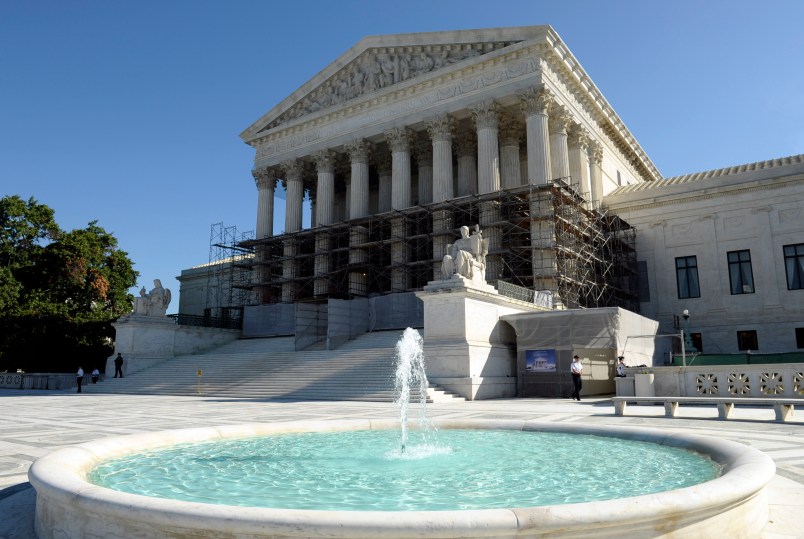Sometimes, the general public is completely unaware of very important decisions government makes because they are shrouded in technicalities. Yesterday, the House of Representatives passed a bill that could crippled the ability of government to regulate private industry.
The bill modifies the Administrative Procedure Act, which was passed in 1946, and represented a compromise between New Deal Democrats and free-market Republicans. It sanctioned the power of government agencies like the National Labor Relations Board or the Federal Communications Commission to regulate the private market, but required public hearings on proposed rulings and court suits to overturn regulations.
The Supreme Court ruled in 1984 that the courts could only overturn rulings that were “arbitrary and capricious, an abuse of discretion.” In other words, the courts would have to defer to the regulatory agencies in finding whether a ruling was justified. But the Republicans in the House passed a law that would allow the courts to rule without giving deference to the regulatory agencies. A Republican court could, for instance, overrule decisions of the Food and Drug Administration or the Environmental Protection Agency on concocted Constitutional grounds – say, by arguing that it violated the “takings” clause of the Constitution. That could cripple the regulatory agencies.
Martin Lobel, a Washington lawyer and expert in tax and regulatory policy, sent me an email explaining the Republican action:
On January 11, while everyone’s attention was focused on confirmation hearings and attempts to repeal Obamacare, the House passed The Regulatory Accountability Act of 2017 (H.R. 5) which would amend the Administrative Procedures Act to overturn the deference courts have given to administrative agency decisions by a vote of 238-183. I was told the Republican leadership was confident, since there are 114 judicial vacancies that they expect will be filled by “conservatives,” this change will significantly help to end “big government,” as will the new Administration’s appointees to the various regulatory bodies. BEWARE.
Marty’s admonition, “Beware,” should be taken very seriously. If the Senate passes this act, and President Trump signs it, federal agencies entrusted with enforcing the Clean Air Act or other landmark legislation, will no longer be able to do their job.
Update: We’ve gotten two interesting responses to my analysis of the Regulatory Accountability Act that House Republicans passed this week. Reader DP agrees with the “overall thrust of the article,” but says that I didn’t explain well how the courts could now overturn agency rulings. NP says that what is at issue is not whether the court can introduce Constitutional considerations, but whether it must accept an agency’s ruling on the basis of whether its decision-making process is “rational,” or whether it can substitute a new process of its own. NP writes,
Under the current deferential APA standards, such determinations are to be affirmed if they are rational or reasonable — the court is not empowered to decide what decision or approach is best, only whether the agency was rational. If such deference is removed by Congress, the court can then “substitute its own judgment” for that of the agency. That would be a big deal, a big change.
Reader DB doesn’t accept the thrust of my article and accuses me of echoing “what comes out of Trump’s mouth.” DB says he says agencies on behalf of public interest groups that want to enforce, say, the Endangered Species Act. He says the Republican law would make it “potentially easier for citizens to enforce these laws.”
If one sees the regulatory agencies as the problem, and if most of the suits brought against them were by public interest organizations, then DB would have a point. But what the law – passed by a party-line Republican vote – would do is to make it easer for businesses and their lobbies like the Competitive Enterprise Institute (a leading backer of the legislation) to overturn applications of major legislation like the Clean Air Act. That’s why Public Citizen and all but five Democrats opposed the law. Thanks to both NP and DB for their responses.






